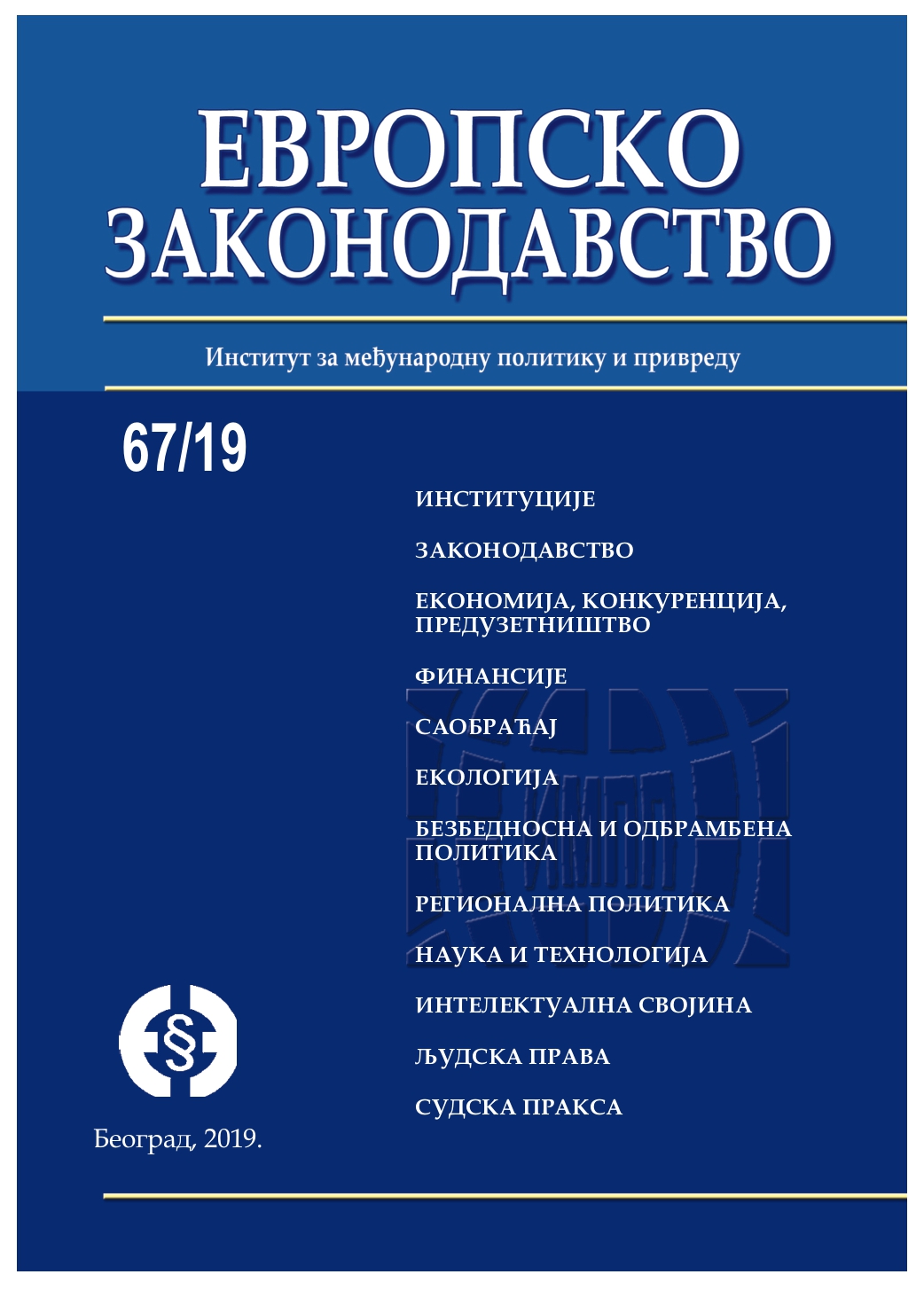Улога интелектуалне својине у креирању стандарда система квалитета
The role of intellectual property in creating the quality management system standards
Author(s): Ana Čović, Aleksandra Darija Čović, Dragan ČovićSubject(s): Law, Constitution, Jurisprudence
Published by: Институт за међународну политику и привреду
Keywords: intellectual property;quality system standards;TQM;ISO 9000;Six sing;benchmarking;swot analysis;
Summary/Abstract: The new industrial revolution and the development of information technologies in the conditions of the globalization process, lead to the rapid growth of scientific and technological innovations in all areas. Also, the emergence of an increasing presence of international competition in the trade of goods and services has stimulated higher investments in science, that is, in technological innovations, knowledge and creation of technical and technological new solutions, which intensified the economic development and improvement of international trade. One of the important factors of economic advancement is intellectual property, and investments in it have accelerated the economic development of those countries that saw the importance of intellectual creativity and provided to these countries significant advantage and even a monopolistic position in the international market. A significant influence on the world economy has a wide application of new products of intellectual property. Therefore, the legal aspects of intellectual property cannot be considered separately from the economic aspects. The processes of automation, control and automatic data processing are of increasing importance both for production and the provision of services. The lifetime of a product on the market is shortened either by the performance of new products or by technical and technological improvements of the existing ones. Therefore, the survival of the market is linked to the increasing importance of the traffic in industrial property rights, which provide and satisfy the need for innovation and improvement of the quality of products and services. In Serbia, more and more entrepreneurs take measures for the adoption of programs in order to strategically connect with the West and to train companies for business according to international standards. Quality enhancement processes increasingly appear as an organized need to satisfy all participants in business life. In this way, intellectual property becomes a TQM, a knowledge capital, where knowledge is the most important factor of success. In such relations well-designed and set up management should contribute to the manifestation of knowledge as a lever of development, and investment in it becomes an investment that requires continuity. The authors will present the main differences in the basic approaches to quality management, the purpose of the implementation of ISO 9000 and TQM, as well as the mutual relationship and the participation of intellectual property in upgrading and improving quality. Moreover, the analysis of intellectual property and management of the organization from the aspect of participation of employees in the research and the role of Benchmarking in the conditions of TQM operation, is necessary for the purpose of a more complete and clear understanding of TQM tools and quality techniques in the function of the results of the organization.
Journal: Европско законодавство
- Issue Year: 2019
- Issue No: 67
- Page Range: 258-277
- Page Count: 20
- Language: Serbian

